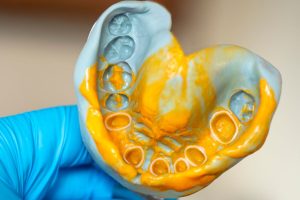Introduction
When someone tells us they have an oral surgery appointment, we think it is a several hours long procedure performed due to an emergency by an oral doctor. In reality, oral surgery is also known as maxillofacial surgery.
What is Maxillofacial Surgery?
It is one of the departments in dentistry. In this department, dentists examine to diagnose for surgery to address a specific dental disease. Most oral surgeries are common such as wisdom tooth removal, fracture of tooth, loss of tooth, sleep apnea treatment. However, an oral surgery specialist will perform these procedures only.
What to expect?
Do not get frightened by the name of oral surgery. Just consider it like a general health-related problem that patients undergo treatments for. These are some steps that you may expect:
- History and examination:
Your oral surgery specialist will ask for your medical history in detail, including medical, dental and family health history. It is followed by a detailed oral examination and the vitals recording. It is to ensure that you are in good health to undergo the needed surgery. Make sure to mention any current medications that you are on.
- Investigation:
Your oral surgery specialist will do some investigations like blood tests and x-ray imaging. If need be, then a CT scan. It is to get a clearer picture of the issues.
You will mostly get an appointment for the procedure, depending on the issues. Sometimes, oral doctors choose to perform oral surgery if you need braces. In such a scenario, your surgeon and orthodontist will perform simultaneously and give you an appointment.
Interestingly, most of the oral surgery procedures are performed in-office. It means that the dentist will perform them under local anaesthesia on the dental chair at the dentist’s office itself. However, some procedures like impacted tooth extraction might need emergency medical assistance. To avoid any extreme risks and abide by the policy, oral doctors sometimes perform some oral surgeries in minor OT.
Only in rare cases does one need a proper OT with general anaesthesia.
- Post-surgical care:
After the surgery, you will be given a prescription and a set of instructions to follow. Make sure to take the medications on time and follow the post-operative instructions as needed. Contact the centre if you feel any facial abnormality—follow-up as appointed.
Which dental treatments are a part of oral surgery?
General dentists in hospitals do the OPD and refer you to the oral surgery department for further investigation. Then, an oral doctor will perform the scheduled oral surgery. In clinics, oral surgeons visit as a consultant whenever there is an appointed patient. Several dental treatments are a part of oral surgery.
- Extraction of impacted teeth:
Extraction of impacted teeth is more complicated than the removal of regular teeth. Usually, oral doctors perform this surgery to remove the wisdom tooth due to tooth decay, infection, or abnormal placement of the tooth.
- Reconstructive surgeries:
Reconstructive surgery is done on the jaws or other plastic surgeries such as rhinoplasty (nose reshaping), genioplasty (chin reshaping, etc.
Jaw reconstructive surgery is also known as orthognathic surgery. It is done when the upper and the lower jaws are not aligned properly. It causes difficulty in chewing the food or adversely affects the aesthetics of the face. So doctors perform surgeries to adjust the jaws for proper alignment.
Rhinoplasty and genioplasty are plastic surgeries done by shaping the bone and adding silicon implants to fill spaces. Eventually, you achieve the desired shape of the nose or the chin.
- Surgery for correction of sleep apnea:
Sleep apnea is a dangerous condition that causes rapid on and off breathing patterns. This occurs due to airway obstruction in the throat. An oral doctor removes the extra tissues from the back of the throat to treat the disease.
If the obstruction is due to tongue size, your dentist may simply give you a mouth guard to use while sleeping.
- Dental implantation:
A dental implant is a permanent replacement of the lost tooth. They use a metal screw-like structure placed inside your jaw bone, at the same place where the tooth used to be. The screw takes the place of the root, and the crown is then placed on top that is usually made of ceramic or porcelain.
A dental implant looks exactly like a tooth and is almost as strong as a natural tooth. However, not everyone qualifies for an implant. After bone structure analysis, your oral doctor can tell you if you can get a dental implant.
Conclusion:
Oral surgery is necessary for healthy teeth. If your oral specialist doctor has recommended you to undergo oral surgery, don’t worry. You just need to call the Maxillofacial Surgeon hospital In Coimbatore. They will have the best dentist in Coimbatore with the latest equipment.












